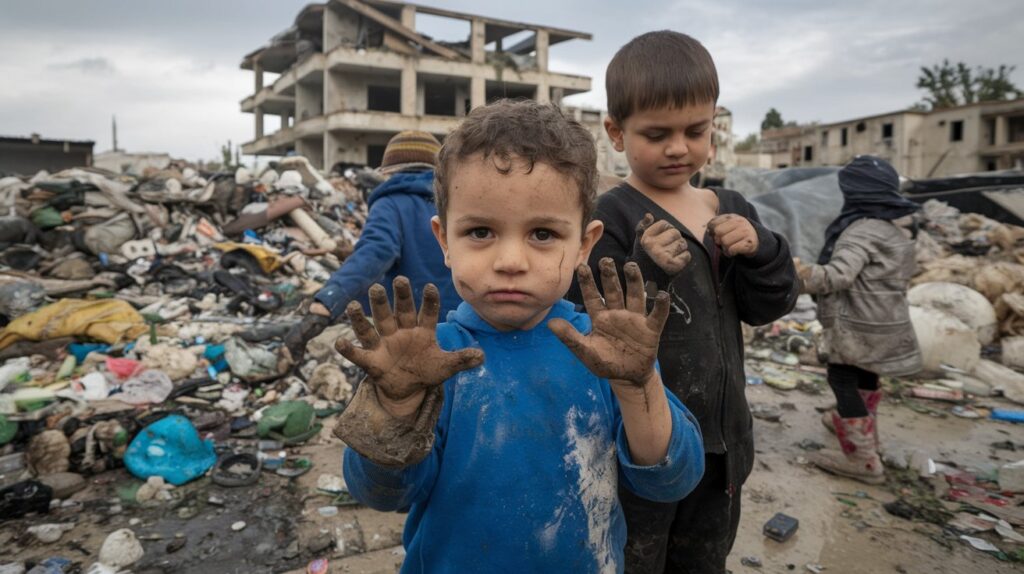Wafaa’s son, a five-year-old boy who lives in a tent city with her and seven other children is having nightmares. It’s not the war.
Mother was concerned. She said, “My son can’t sleep because he will not stop scrubbing at his skin.”
He has white and red spots on his legs and feet, as well as more underneath his shirt. The boy is just one of the many Gazans who suffer from various skin conditions, from chicken pox to scabies, and even impetigo.
According to the World Health Organization, more than 150.000 Palestinians have developed skin disease in the conditions of squalor that displaced Palestinians in Gaza have endured since Israel began its war in Gaza.
Elwan said, “We sleep in the sand on which worms crawl out from underneath.” Elwan’s family is among thousands of people who live on a sand patch close to Deir el-Balah, a central Gaza City.
Elwan is convinced that infections will always be present. We cannot bathe children the way we used to. We have no hygienic and sanitary products to clean and wash the house. There’s nothing.”
In the past, parents would tell their kids to bathe in the Mediterranean. The pollution caused by war and the destruction of basic infrastructure has increased disease risk.
The sea smells like sewage. She said that they even throw baby napkins and garbage into the ocean.
Since the beginning of the conflict, the WHO reported 96 417 scabies cases and lice cases, 9 274 chickenpox cases, 60 130 skin rashes cases, and 10 038 impetigo.
Sami Hamid is a pharmacist in Deir el-Balah who operates a temporary clinic.
The clinic was able to identify dozens of blisters, scabs, and other signs caused by chickenpox on the hands, feet, stomachs, and backs of two boys.
Hamid, 43 and himself homeless, applied calamine cream to the skin of the children in order to relieve the itching.
He said that “the heat and lack of water” are to blame for the dry skin on children. Mohammed Abu Mughaiseeb is the Medical Coordinator in Gaza of Doctors Without Borders (also known as MSF). He said that children were vulnerable because they “play outside and will touch or eat almost anything.”
Abu Mughaiseeb says hot weather causes more sweating and dirt accumulation, which can cause rashes or allergies. Infections can be caused by scratching the skin.
He said, “People no longer live in homes. There is no good hygiene.”
MSF doctors are concerned about the appearance of skin diseases such as leishmaniasis. This condition can be deadly in its most severe form.
He said that Gazan children were already very vulnerable to diseases because of their compromised immune system.Hamid, a pharmacist, told his team that they visited a temporary school where 24 out of 50 students were infected with scabies.
WHO warns that other diseases are also spreading in camps of displaced people, fueled by poor sanitation.
Read for more:https://medicalguro.com/us-study-kidney-transplants-between-hiv-positive-people-are-not-harmful/



